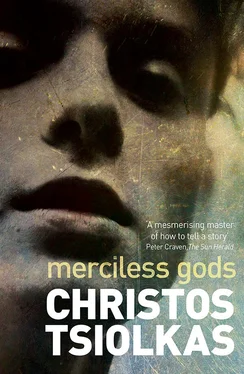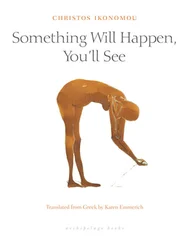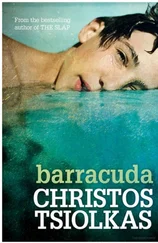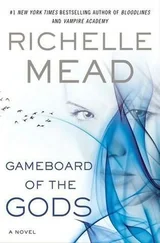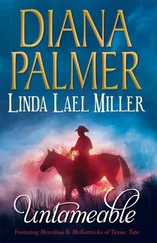She winked at her husband and called out to the hallway, ‘It’s in the lounge where you left it last night.’
‘Thanks, Mum.’
No, she thought wickedly to herself, thank you.
•
She liked working, appreciated her job and the freedom it gave her. Most days she was on the road, visiting clients, travel agencies and tourist bureaus; once a month she would fly to Adelaide to take agents on a tour of the South Australian wine districts or beaches. She hadn’t worked for five years while Jack and her daughter, Kalinda, were preschoolers; by the end she was bored and unhappy. It had been just before Jack started at primary school that she’d mutinously informed Rick she was not ever going to iron his shirts again. More than any other of the myriad household chores, it was the ironing she had focused on to distil her rage. Rick hadn’t put up a fight, an anticlimax that had annoyed her no end. It had been the worst period of their marriage — they had just taken out the mortgage on that first house in Watsonia, Kalinda had been diagnosed with dyslexia, and Jack, not adjusting to kindergarten, was still wetting the bed. Her life seemed a constant cycle of washing, cleaning, drying tears, intervening in squabbles, driving, driving, driving. She had come to hate the family car, the smell of it, the metallic trace of Kalinda’s vomit that they could never seem to wash out of the back seat, the stereo trapped forever on Classic Hits FM. There had been three months back then when she would wake up every night from a nightmare in which Australian Crawl’s ‘The Boys Light Up’ seemed to be playing endlessly on an infernal loop.
It was Rick who had suggested that she go back to study, and it had been great advice. In the short term, the two evenings a week at college had seemed only to add to her exhaustion, but she had completed a diploma in tourism in three years and by the time Kalinda had started high school she was working full-time for Harvey World Travel. She and Rick could now joke about her aversion to ironing; for the last few years Rick would bounce out of bed on his birthday and announce, taking off Cartman from South Park , ‘It’s my b-b-b-b-b-b-birthday, you have to iron my shirts.’
She didn’t want to retire, didn’t even want to think about it, but these days she appreciated the rhythms and meditative pace of housework, the pleasure that came from cooking and organising the running of a home. She and her girlfriends would chuckle and complain about the laziness and unreconstructed apathy of their suburban husbands, but she was always a little annoyed when Rick wanted to cook or thought it a good idea to reorganise the lounge or bedroom. No, damn you, she would think, that’s my terrain. She went to the gym twice a week, had recently joined a Pilates class. Housework was part of her relaxation. It had ceased to be a job long ago.
She had baked an upside-down pear and caramel cake, washed the dishes, scrubbed the stove top, got rid of the out-of-date bottles gone grey at the back of the pantry, when she glanced at the clock and realised it was time to pick up the boys for soccer. Her hair, unwashed, silver at the roots, was a mess. She quickly stripped off her gardening shirt, put on a blouse, tied a scarf around her head and ran out to the car. She knew the boys would be waiting for her outside the school gates, checking the time on their phones. As she waited at the lights, she texted her son a quick message, keeping her eyes out for the police. The woman in the four-wheel drive in the next lane beeped her horn at her and Marianne threw her a tight grimace. Come on, lady, you’ve got kids, you know what it’s like. The lights went green, she pressed send and took off.
Jack was waiting with his mates Stavros and Billy and they didn’t seem at all concerned about the time. As she made her way slowly up St Georges Road, she could see them mucking around with a soccer ball on the footpath. Freda Carlosi’s daughter, Amelia, was with them. As always happened, Marianne felt a small tremble of sadness go through her on seeing the girl. Amelia had been born with Down syndrome, and even though she was Jack’s age, Freda and Anthony still dressed her in pink hoodies and track pants that were more appropriate for a girl half her age. The one she was wearing today had Walt Disney bunny rabbits printed on it, but her body could scarcely be contained in the children’s clothes: her breasts were enormous, her bottom fleshy and prominent. As Marianne pulled into the kerb near them, she could see that the girl was trying to get the boys’ attention. Billy, the tallest of them, was holding the soccer ball high above her head and Amelia was trying to grab for it. Her son and Stavros were laughing. Marianne pushed the button to wind down the passenger window and call out to them, tell them to stop teasing Amelia and fooling around, when the girl’s fingers hit the ball and it bounced back off her hand and flew onto the road. She felt a jolt of terror, thinking Amelia would rush into the traffic, but Bill reached out and pulled her back. The ball had gone under a car and unleashed a torrent of horns.
It was then she heard Billy’s voice pierce the noise: ‘Freakin’ hell, Meels, watch what you’re doing!’ She saw the girl’s face blush red and then she heard her son: ‘Yeah, Meels, why are you such a dumb mong?’ Stavros broke out into mocking giggles and Billy gave her son a slap across the back. ‘Mong,’ Jack repeated, even more loudly, and that was when he looked up and saw Marianne. His face broke into a grin and he grabbed his schoolbag off the ground. ‘Come on, Mum’s here.’ The traffic had come to a complete halt and Billy took the opportunity to dash across the road and scoop up the ball.
Jack and Stavros scrambled into the car, Billy following with the ball tucked under his arm. ‘Hey, Mrs P,’ ‘Hello, Marianne,’ ‘Why are you late, Mum?’
She ignored them. Her eyes were fixed on Amelia waving at them. She waved back uncertainly. She looked over at her son. ‘Who’s picking up Amelia?’
‘I don’t know — her mum.’
‘We can’t leave her here alone.’
Jack rolled his eyes and pointed to the groups of boys and girls at the tram stop, straddling the school fence, drifting down the school drive in pairs, in trios, in groups of four and five.
‘She’ll be fine, Mrs P,’ Stavros said from the back, wrestling the soccer ball off Billy. ‘She knows she has to wait for Mrs C.’
‘She nearly ran out on the road before.’
‘Mum! We’re going to be late.’
Marianne put the car into drive and hit the indicator. As the car pulled into the traffic, she could see that the girl was still waving at them. The boys ignored her.
‘I heard what you called her.’
‘What?’ Jack shrugged his shoulders. He was pulling off his jumper and white shirt, fumbling in his bag for his soccer shirt.
‘I heard what you called her.’
In the back, Stavros and Billy had fallen silent.
She could smell her son’s day-long musty pong. His boyhood sweetness was all gone. It appalled her, the overwhelming vigour of his stink.
‘I think it is disgusting, calling her names.’
Jack mumbled something.
‘What did you say?’
He was struggling to pull his soccer shirt down over his chest, his middle, wriggling in his seat, all sinewy arms and sprawling legs. ‘I said, whatever.’
I could smack you.
‘It’s alright, Mrs P.’ Stavros was leaning forward. ‘It’s just a word — she doesn’t mind. It’s like when they call me a wog.’
‘That’s right.’ Billy leaned forward as well. ‘Or when they call me a Maco dickwad.’
‘You are a Maco dickwad.’
Billy grabbed the ball off Stavros and threw it hard at the back of Jack’s head.
Читать дальше
